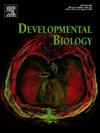生命科学教学:从发育生物学的角度探讨生殖技术的多学科教育方法。
IF 2.5
3区 生物学
Q2 DEVELOPMENTAL BIOLOGY
引用次数: 0
摘要
体外受精、冷冻保存和植入前基因检测是变革性的生殖技术,为面临生育挑战的个体带来了希望。从科学上讲,理解发育生物学对于理解这些技术的机制和影响至关重要。在胚胎学科学中,生物学观点认为生命是一系列的发育阶段,从受孕到生存能力,每个阶段都可能代表生命的不同“开始”。然而,根植于宗教和文化信仰的抚养概念引入了一种思辨的因素,最终影响到世界各地的法律制度在生殖决策方面如何界定和保护人的生命。从法律上讲,“索菲亚·维加拉诉尼克·勒布”或“昆塔瓦莱诉人类受精和胚胎学管理局”等备受瞩目的案件引发了对父母和胎儿生殖权利和同意的质疑。本文强调了多学科方法在发育生物学教育中对负责任和公平的生殖技术实践的重要性。它强调了将这些考虑纳入课堂教学的重要性,作为与DEI方法一致的案例研究讨论,以更好地使学生掌握他们在扮演发育生物学家角色时可能遇到的争议。本文章由计算机程序翻译,如有差异,请以英文原文为准。

Teaching the science of life: A multidisciplinary educational approach to reproductive technology debates through the lens of developmental biology
In vitro fertilization, cryopreservation and pre-implantation genetic testing are transformative reproductive technologies offering hope for individuals facing fertility challenges. Scientifically, understanding the science of developmental biology is essential for comprehending the mechanisms and implications of these technologies. In embryological sciences, biological perspectives identify life as a series of developmental stages ranging from conception to viability, each potentially representing a different ‘beginning’ of life. However, the concept of ensoulment, rooted in religious and cultural beliefs, introduces a speculative dimension ultimately influencing how legal systems worldwide define and protect human life in the context of reproductive decision-making. Legally, high-profile cases such as ‘Sofia Vergara v. Nick Loeb’ or ‘Quintavalle v. Human Fertilization and Embryology Authority’ raise questions about both parental and fetal reproductive rights and consent. This paper highlights the importance of a multidisciplinary approach in developmental biology education for responsible and equitable practices of reproductive technologies. It underscores the importance of incorporating these considerations into the classroom teaching as case study discussions aligned with the DEI approach, to better equip students for the controversies they may encounter in their roles of developmental biologists.
求助全文
通过发布文献求助,成功后即可免费获取论文全文。
去求助
来源期刊

Developmental biology
生物-发育生物学
CiteScore
5.30
自引率
3.70%
发文量
182
审稿时长
1.5 months
期刊介绍:
Developmental Biology (DB) publishes original research on mechanisms of development, differentiation, and growth in animals and plants at the molecular, cellular, genetic and evolutionary levels. Areas of particular emphasis include transcriptional control mechanisms, embryonic patterning, cell-cell interactions, growth factors and signal transduction, and regulatory hierarchies in developing plants and animals.
 求助内容:
求助内容: 应助结果提醒方式:
应助结果提醒方式:


